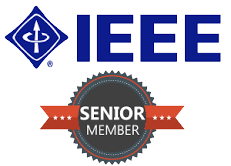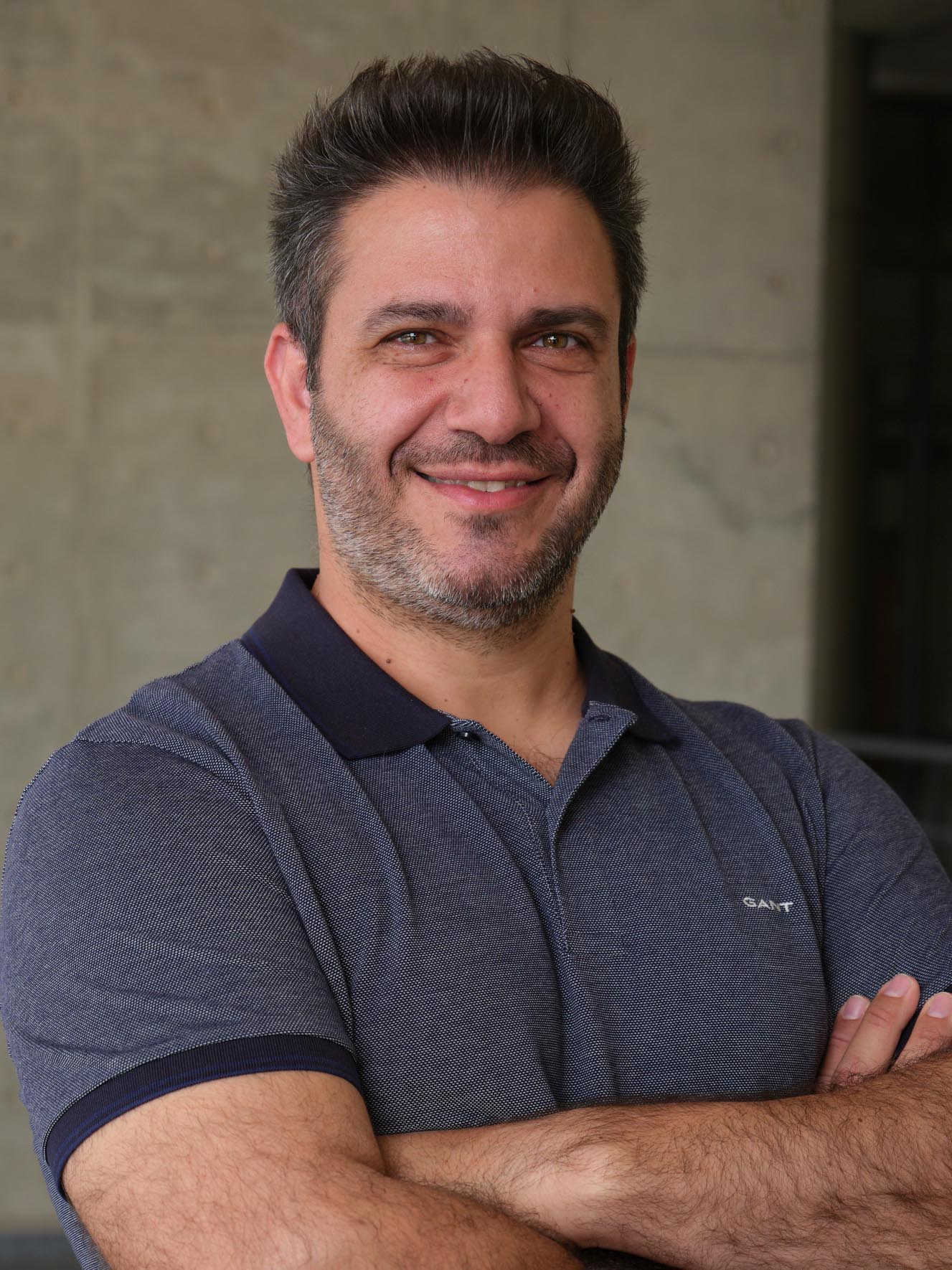Dr. Andreas Aristidou
Andreas Aristidou


Assistant Professor
Graphics & Extended Reality Lab, University of Cyprus
a.aristidou@ieee.org
Motion Capture, Motion Synthesis and Analysis, Character Animation, Machine Learning, Inverse Kinematics, Digital Heritage, Geometric Algebra







Andreas Aristidou is an Assistant Professor at the Department of Computer Science, University of Cyprus, member of the Graphics & Extended Reality Lab, and a Senior Research Fellow at the CYENS centre of excellence with special interest in computer graphics and character animation. He completed his PhD as a Cambridge European Trust fellow at the Signal Processing and Communications Laboratory, University of Cambridge and holds an MSc in Mobile and Personal Communications from King's College London, where he graduated with honors. Dr. Aristidou also obtained a BSc in Informatics and Telecommunications from the National and Kapodistrian University of Athens. He previously worked as a research fellow at Shandong University (China), IDC Herzliya (Israel), and the University of Cyprus, and participated in a number of EU funded projects. He is currently on the editorial board of The Visual Computer (TVC) and Heritage journals, and is a guest editor for the Frontiers in Virtual Reality and Advances in Applied Clifford Algebras (AACA) journals. He is a senior member of the Association of Computing Machinery (ACM, SM from 2020), the Institute of Electrical and Electronic Engineers (IEEE, SM from 2019), and Eurographics. He is also a member of the Cyprus Scientific and Technical Chamber, where he previously served as a member of the Research Committee, while from 2020-2021, he was a member of the Cyprus Parallel Parliament for research, innovation, and digital governance. He has received numerous fellowships, distinctions, and research grants from highly competitive local, EU, and international agencies.
His main research interests lie at the intersection of computer graphics, virtual reality, and vision. He specializes in character animation (analysis, classification, and synthesis) and employs various techniques, including motion capture, inverse kinematics, and machine learning for virtual humans (deep and reinforcement learning). He is also actively involved in research related to digital heritage (intangible cultural creations), VR/AR/XR environments, and applications of conformal geometric algebra in graphics. He has published over 50 papers in top-tier journals and international conferences, including SIGGRAPH, ACM TOG, IEEE TVCG, and Eurographics. He participated in a number of EU funded projects, and he collaborates with EU creative industries to design innovative algorithm for motion synthesis and character retargeting.
International Program Committee: SIGGRAPH Asia 2024, Eurographics 2024 (STARs Chair), ACM-SCA 2024, CGI 2024, SIGGRAPH Asia 2023, Pacific Graphics 2023, CASA 2023 (Program Chair), IMET 2023, Eurographics 2022 (Award Jury Chair), ACM-SCA 2022, CGI 2022, CASA 2022, ENGAGE 2022, IMET 2022, CAIP 2022, ACM-SCA 2021, CGI 2021, CASA 2021, ENGAGE 2021, ENGAGE 2020, ENGAGE 2019, MIG 2018, ENGAGE 2018.
Awards – Fellowships – Prizes
- Our video on EYO dance digitization has been nominated for Best Dance Film at the 2023 Cyprus Dance Film Festival, the premier event for creators and enthusiasts of dance film in Cyprus.
- Awarded the Erasmus Mundus Grant for visiting scholars (2018) to undertake teaching and research activities in the context of dance as Intangible Cultural Heritage (Choreomundus International Master).
- Awarded the nVIDIA GPU grant (2017), to investigate deep learning methods for motion synthesis and analysis.
- Following his novel research in folk dance digitization, Andreas was part of a consortium that has been awarded the DARIAH-EU Theme 2015 in Open Humanities for organizing a workshop on e-documentation of Intangible Cultural Heritage (€6K).
- Best paper award at the 12th Eurographics Workshop on Graphics and Cultural Heritage (GCH’14), for the paper “Motion Analysis for Folk Dance Evaluation”, co-authors: E. Stavrakis, and Y. Chrysanthou.
- Awarded the Office of Naval Research Global (ONRG) Visiting Scientist Program (VSP) scholarship in 2013 to visit PhaseSpace Inc. offices in San Leandro, CA, USA, in order to be trained and gain experiences on subjects relative to motion capture (€4.5K).
- Awarded the prestigious ΔΙΔΑΚΤΩΡ fellowship (2012-2014), by the Cyprus Research Promotion Foundation, to establish research in motion analysis and classification (€125K, with acceptance rate 5%).
- PhaseSpace Inc. awarded me with a full 8-camera X2 motion capture system (2012), providing the essentials to establish my own motion capture laboratory at the Graphics and Virtual Reality Lab, University of Cyprus. They also donated a multiLED board (hand glove) in order to practise hand reconstruction methodologies on their software (€60K).
- Cambridge European Trust Bursary (2007-2010) for PhD studies at the University of Cambridge (€13.5K).
- Best BSc dissertation (2005), included in the annual journal of the Department of Informatics & Telecommunications (University of Athens) and presented in the Hellenic Artificial Intelligence Conference SETN-06, Crete, Greece, 2006.
Research Grants
- Research funding (2024-2027) from the Horizon Europe 2024, Call: HORIZON-CL2-2024-HERITAGE-01, Project Acronym: HAMLET (~€4M, €410K for CYENS).
- Research funding (2024-2025) from the ERASMUS+ Key Action 2: Small-scale partnerships, Project Acronym: EMBRACE (€60K, €16K for CYENS).
- Research funding (2023-2024) from the Cypriot Civil Society in Action VIII under the theme “Youth In Action: Promoting Dialogue Through Culture”(~€60K, €7K for CYENS).
- Research funding (2022-2025) from the Horizon Europe 2021, Call: HORIZON-CL2-2021-HERITAGE-01, Project Acronym: PREMIERE (~€4M, €591K for CYENS).
- Research funding (2021-2023) from the Research and Innovation center, University of Cyprus, Project Acronym: DEMONSTRATION (€60K).
- Research funding (2020-2024) from the Horizon 2020 Call: H2020-MSCA-ITN-2019, Project Acronym: CLIPE (>€4M, €353K for UCY).
- Awarded the seed grant (2020-2021) by the Cyprus Seeds organization, to commercialize his innovative academic research in motion capturing, Project Acronym: ALADDIN (€25K).
- Start-up funding (2020-2022) from the Research and Innovation center, University of Cyprus, Project Acronym: CINERAMA (€50K).
- Research funding (2018-2021) from Cyprus Research & Innovation Foundation, Call: POST-DOC/0916, Project Acronym: ReTrack (€120K, €15K for UCY).
© 2017 Andreas Aristidou